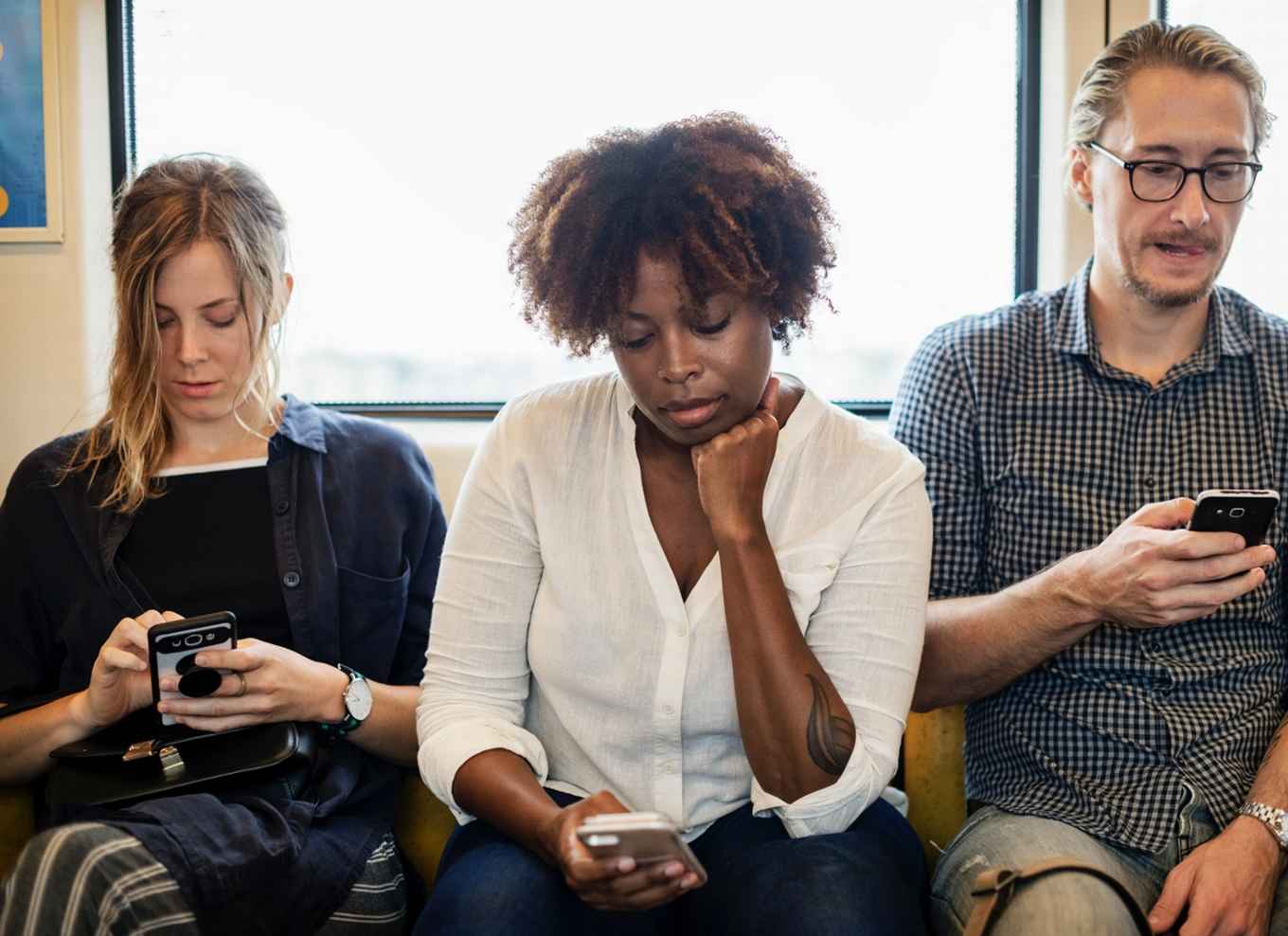Addicted to your phone? Here are some tips on how to avoid problematic smartphone use
14 August 2024

Dr Shuang Su spent six years studying problematic smartphone use among young people. But what exactly is problematic smartphone use? ‘It’s a level of use that actively affects your daily functioning,’ Su says. ‘For example: a student told me that she had failed her exams after being constantly distracted by her phone. Other students said they hide away in the bathroom with their smartphones so that family members don’t get angry about them spending too much time on their phones.’
Lower self-control, loneliness and mental problems
For her doctorate, Su studied the influence of three factors on problematic smartphone use among young people: social competence, online contact with peers and face-to-face contact with peers. This showed that young people who perceive a low social competence and/or intensively check their smartphone for messages from their peers may be particularly vulnerable to developing problematic smartphone use over time. Other related studies show that young people with lower self-control, who are lonely or struggling with mental problems are at greater risk of developing problematic smartphone use. ‘Young people with mental problems use their phones to compensate for needs that aren’t being met. However, phones can exacerbate problems, too. For example, people with severe depression often sleep badly, not least because their phones are within easy reach when they’re in bed at night.’
Tips for healthy screen time
As part of her research, Shuang Su also spoke to 28 students about their smartphone use, the negative part of their smartphone use and how they dealt with them. Based on these students’ experiences, Su has the following tips on how to achieve a healthy amount of screen time:
-
Practise mindfulness (on your phone)
Previous studies have shown that mindfulness helps counter problematic smartphone use. ‘Meditation exercises make you more conscious of your daily activities while you’re doing them and reduce the time you spend scrolling aimlessly on your phone. In addition, there are apps to help you practise mindfulness.’
-
Be clear about your intentions
Before you grab your phone, ask yourself what you’re planning to use it for. Then, make sure you stick to doing just that – and set a timer if you need to. ‘If you want to reply to a specific email, use your mobile to respond to that particular message and don’t do anything else.’
-
Add a reminder to your background screen
A background screen photo about your smartphone use is a simple but effective tool. ‘A YouTube vlogger showed a background photo on their phone that said: “What are you going to do?”.’
-
Keep an eye on your screen time
Check your settings regularly to see how much time you spend on your phone every day. ‘Many respondents were really shocked by their screen time!’
-
Don’t compare yourself to others
Many people don’t think they have a problem, because they use their smartphones just as much as their friends do. Social norms can distort your perception of what’s acceptable. ‘Ask yourself whether your smartphone use reflects your own values and needs rather than comparing yourself to others.’
Don’t forget the positives
While Su is very aware of all the drawbacks of smartphone use, she would also like to see more attention being given to the positive effects of smartphones. ‘A lot of research on smartphone use focuses on the negative effects, despite there being many positive effects as well. My paper shows that young people who actively use social media to send messages develop better social skills. Let’s take UvA‘s international students as a case in point. Their smartphones enable them to communicate with friends and family back home. When they meet someone at a party, they can use social media to keep in touch and develop new friendships.’

Young people today who don’t have smartphones may actually have more mental problems than young people with smartphones.Shuang Su
Balanced perspective needed for future research
Future research should focus on digital well-being: the balance between the positive and negative effects of smartphones. ‘This balanced perspective will be crucial for the development of effective tools to counter problematic smartphone use. People who stop using their phones altogether experience mental problems, too. We need to teach the vulnerable group – consisting of people who have lower self-control or are lonely – how to use their smartphones to their advantage. Coaching sessions can help people maintain friendships, which improves their self-confidence and increases the odds of them making new friends.’
